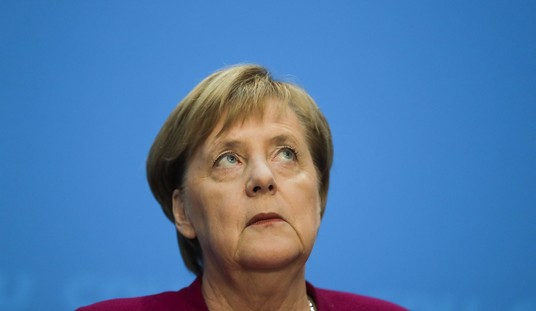Mitt Romney sailed to an easy win over Rick Santorum last night in Illinois, winning by twelve points in a primary that unfolded just about how pollsters predicted — unlike in Mississippi a week earlier. The 47% plurality won by Romney may have been the lowest winning percentage in Illinois in 100 years as Smart Politics points out, but it’s also the first time in decades that an Illinois primary meant anything to Republicans, too. Romney took the lion’s share of the delegates — at least 41 of the 54 at stake last night, with three delegate races still outstanding. It was an impressive win:
With a decisive win in the Illinois presidential primary, former Massachusetts Gov. Mitt Romney sets his sights on the bayou where Louisiana holds the next Republican primary.
“We thank the people of Illinois for this extraordinary victory,” Romney told supporters in the Chicago suburb of Schaumburg. “Elections are about choices. Today, hundreds of thousands of people in Illinois joined millions of people in this country in this cause.”
With 99% of precincts reporting, Romney led former Pennsylvania Sen. Rick Santorum by a 47%-to-35% margin. Texas Rep. Ron Paul was running third at 9%, while former House Speaker Newt Gingrich had 8%.
With the victory, Romney was poised to win at least 41 of the 54 delegates up for grabs in the state, giving him a total of 562, according to CNN’s estimate. Santorum is second with 249, Gingrich third with 137 and Paul last with 69.
Next comes Louisiana, where Santorum expects to do well in a proportional primary on Saturday. He’ll need a win to keep the race from hitting a tipping point and Republicans from coalescing around Romney. If Romney wins in Louisiana, he’ll add a Southern state to his regional claims and head into the 10-day break with momentum and a favorable primary schedule in April. Santorum has to last out April to get to a more favorable primary schedule in May, with five southern states and two in the Midwest. Romney wants a knockout, and fast; Santorum needs a gamechanger.
You know what might work for both of them? Another debate. In my column for The Week, I lay out why both men might be inclined to see a debate between Louisiana’s primary and the four contests on April 3rd as an opportunity for their own strategic purposes, as long as it was a real, one-on-one debate:
Santorum might feel that the potential reward of another debate would be worth risking another mediocre showing. Santorum has won two primaries and a caucus since the last debate, and he has a fair shot at winning Louisiana’s primaries on Saturday, while Tuesday’s primary in Illinois looks likely to break for Romney. Starting in April, though, the primary schedule looks a lot less friendly for the Pennsylvanian. Eight states will hold primaries — four on April 3, and five more on the 21st — and Santorum probably only has a significant chance of winning in Wisconsin and Pennsylvania. If he can gain traction and catch up in the delegate hunt, May looks more promising, with seven of the eight states in the South or Midwest. But by the time Santorum gets there, his strength may have faded if he can’t keep up with Romney in April. Santorum has managed to outmaneuver Gingrich to become Romney’s most significant competitor, but without real wins to close the delegate gap, his credibility will evaporate. He needs a game-changer.
Would Romney agree to a debate? Conventional wisdom would dictate that a frontrunner avoid getting tangled in another debate. However, Romney may also need a game-changer — not to win the nomination, but to win it more quickly. Thanks to rule changes made by the RNC after John McCain won the nomination before most of the country got a chance to vote, Romney has to outlast everyone else and hope that he gets enough delegates to clinch a convention majority. While his opponents continue to campaign, the delegate splits at least give the impression that Romney won’t be able to close the deal, leaving the possibility open for a brokered convention. A big debate win for Romney, or even just another defensive and distracted performance from Santorum, might be enough to derail Santorum and produce the tipping point that Romney needs to get voters to climb onto his bandwagon.
More importantly, though, voters in the upcoming states could use a fresh debate, as long as it doesn’t use the game-show format we’ve seen thus far — and with only two candidates on stage, the need for that format disappears:
The most important question is whether the voters need another debate — and perhaps the answer is yes, given the right conditions. None of the previous debates used a format that produced real insight into policy or governing temperament, owing mainly to the number of candidates on stage and the media’s insistence on using game-show techniques. With only the two frontrunning candidates on stage, the time pressure on answers created by the need to get to seven, eight, or nine candidates evaporates. Romney and Santorum would have more time for substantive answers to substantive questions — presuming the moderator focused on issues that matter most to voters, and not silly questions about underwear and personal squabbles. In a revamped format that perhaps could take its cues from the Gingrich-Herman Cain debate, one last face-off might produce significant value for voters still choosing which candidate to support.
I’d guess that the likelihood of another debate would be low. Both candidates probably want to focus on raising money in the ten-day break, and neither would leap at the chance to put themselves at risk. However, voters never got a real debate with the leading candidates, and one at this stage — with almost half of the states remaining to cast ballots — might be a very good idea for them.







Join the conversation as a VIP Member